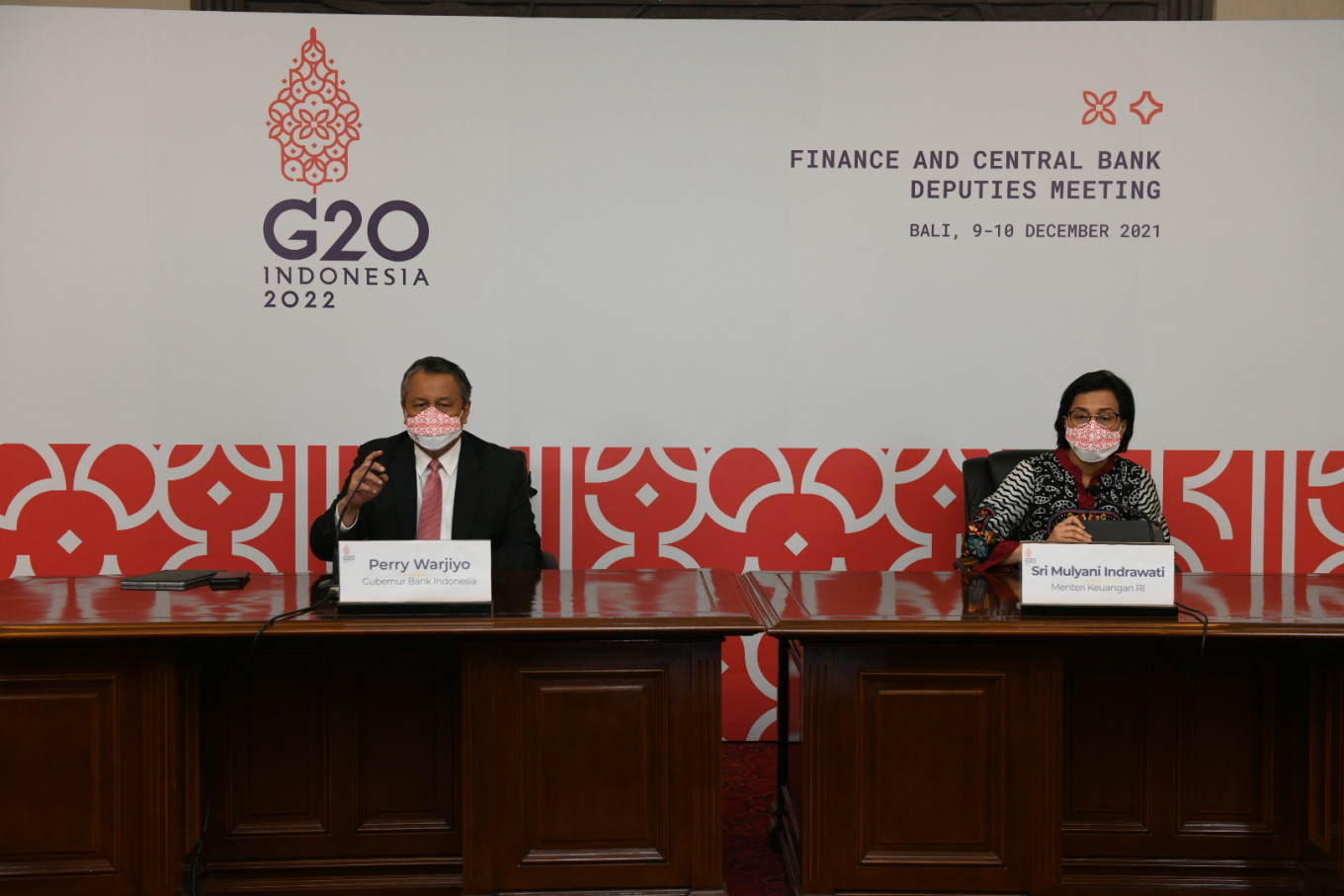Popular Reads
Top Results
Can't find what you're looking for?
View all search resultsPopular Reads
Top Results
Can't find what you're looking for?
View all search resultsReasonable dovish stance
It is most imperative for the government to ensure that the energy subsidies will not overshoot the target.
Change text size
Gift Premium Articles
to Anyone
B
ank Indonesia predictably decided last Thursday to hold the BI 7-Day Reverse Repo Rate at 3.5 percent, the deposit facility rate at 2.75 percent and the lending facility rate at 4.25 percent for two main reasons despite the hawkish sentiment across the world.
The first is that the central bank is still waiting to see how much the United States Federal Reserve would hike its policy rate at its Federal Open Market Committee meeting scheduled for Tuesday and Wednesday and the second factor is the fairly robust condition of the Indonesian economy and still-low demand-led (core) inflation.
Many analysts predicted the Fed would hike its policy rate by another 75 basis points (bps) as it had indicated at its last meeting due to the U.S inflation of 9.1 percent year-on-year (yoy) in June. But even if the Fed does raise its rate by another 75 bps this week, BI need not immediately follow the Fed move in lockstep.
But we share the view of many analysts that in order to maintain the interest rate differentials with the U.S still attractive to foreign portfolio capital BI needs to raise its policy rate by at least 50 or 75 bps in the third and fourth quarters.
Our economic conditions are indeed more robust compared with many other emerging markets due to the windfall from the commodity boom and the removal of tight social mobility restrictions. In fact, while the Asian Development Bank revised downward its economic projection for Asia last week it revised upward Indonesian growth this year to 5.2 percent from 5 percent predicted in April.
Strong external buffers produced by the all-time big trade and current account surplus, big foreign exchange reserves that are enough for 6.5 months of imports and servicing government short-term debts and the strong recovery in retail sales and consumer loans are positive indicators that led BI not to immediately follow the money tightening trend across the world.
Moreover, though the consumer price index rose by 4.35 percent in June on a yoy basis, the demand-led (core) inflation was only 2.63 percent, which is still within the BI target inflation.
As the government has pledged a total of Rp 510 trillion (US$34 billion) to cushion the inflationary impact of the energy price in order to protect the purchasing power of the people, it would indeed be counterproductive if BI immediately followed the hawkish sentiment globally. After all, the post-pandemic economic recovery has just started with 5 percent growth in the first quarter.
All the positive indicators do not mean both the fiscal and monetary authorities would simply sit tight and relax, and it is good to learn that Finance Minister Sri Mulyani Indrawati and BI Governor Perry Warjiyo have warned against complacency. It is most imperative for the government to ensure that the energy subsidies do not overshoot the target.
But as we hinted earlier, if the Fed does raise its rate by 75 bps this week, widening interest rate differentials would weigh on the rupiah to curb capital outflows even though the share of foreign ownership of government bonds has decreased to only 16 percent, compared with 40 percent in the 2013 taper tantrum in the US.











